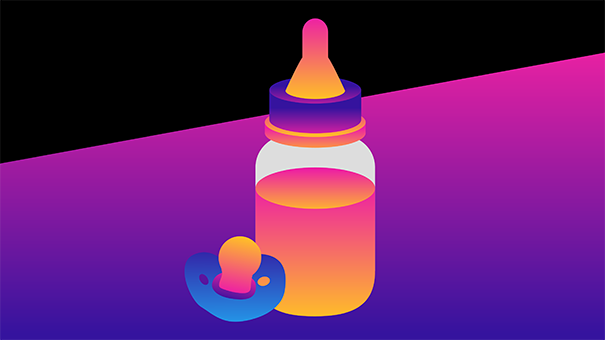Effective June 27, 2023, the Pregnant Workers Fairness Act expanded protections against pregnancy discrimination, requiring reasonable workplace accommodations for employees and job applicants with pregnancy-related limitations that do not rise to the level of a disability. The Providing Urgent Maternal Protections for Nursing Mothers Act, which became fully effective on April 28, 2023, broadened workplace protections for breastfeeding employees.
Download this FYI as a printable PDF.
Background
Two measures aimed at expanding employment protections for pregnant and postpartum employees were signed into law last December as part of the Consolidated Appropriations Act, 2023. The Pregnant Workers Fairness Act (“PWFA“) requires covered employers to offer reasonable workplace accommodations to employees and job applicants who are expecting or recently gave birth, and prohibits retaliation against them for seeking or using such accommodations. The Providing Urgent Maternal Protections for Nursing Mothers Act (“PUMP Act“) extends to exempt employees the same break time and privacy protections to express breast milk at work that non-exempt workers have.
PWFA
The Pregnancy Discrimination Act of 1978 amended Title VII of the Civil Rights Act of 1964 to prohibit employment discrimination on the basis of pregnancy, childbirth, or related medical conditions. It requires reasonable accommodations for pregnancy-related conditions, but only when accommodations are made to nonpregnant employees similar in their ability or inability to work. The Americans with Disabilities Act (“ADA”) requires employers to provide reasonable accommodations for pregnancy-related conditions, but only when the conditions rise to the level of a disability. Because pregnancy itself is not a disability under the ADA, normal pregnancies or nondisabling pregnancy-related impairments would not trigger that requirement.
Intended to fill the coverage gap, the PWFA extends the accommodation protections found in the ADA to workers with known limitations related to, affected by, or arising out of pregnancy, childbirth, or related medical conditions. It requires private employers with 15 or more employees and public employers to provide reasonable workplace accommodations for employees and applicants whose ability to perform job functions is limited by pregnancy, childbirth, or a related medical condition, regardless of whether the limitation meets the ADA definition of disability.
PWFA provisions and definitions borrow heavily from the ADA. Like the ADA, the PWFA requires employers receiving accommodation requests to engage in the interactive process and offer a reasonable accommodation, unless the accommodation would pose an undue hardship on the operation of the business. The terms “reasonable accommodation” and “undue hardship” have the same meanings under the PWFA as under the ADA.
The PWFA makes it unlawful for a covered employer to:
- Deny employment opportunities to a qualified employee based on the need to make reasonable accommodations related to pregnancy, childbirth, or related medical conditions;
- Require a qualified employee to take leave, whether paid or unpaid, if another reasonable accommodation can be provided that would allow the employee to continue working; or
- Retaliate against a worker for requesting or using reasonable accommodations.
Notably, the PWFA adopts a more expansive definition of “qualified individual” than the ADA. Under the PWFA, a qualified employee is an employee or applicant who, with or without reasonable accommodation, can perform the essential functions of the job — except that an individual may still be qualified if: (i) they are temporarily unable to perform an essential function due to pregnancy, childbirth, or a related condition; (ii) the essential function could be performed in the near future; and (iii) the inability to perform the essential function can be reasonably accommodated. Because the PWFA favors accommodations that enable pregnant employees to continue working, employers may have to consider temporary relief from essential job duties in some circumstances.
The EEOC, which will enforce the PWFA, has not yet unveiled proposed regulations, but it has released limited guidance. Among other things, the guidance offers examples of possible reasonable accommodations under the new law including: the ability to sit or drink water; closer parking; flexible hours; appropriately sized uniforms and safety apparel; additional break time; time off to recover from childbirth; and relief from strenuous activities and/or activities that involve exposure to compounds not safe for pregnancy.
Buck comment. More than 30 states and localities already require employers to provide workplace accommodations for workers affected by pregnancy, childbirth, or related medical conditions. While the PWFA does not replace state or local laws with greater protections, employers should carefully review their accommodation policies to ensure compliance with applicable federal, state and local requirements.
EEOC now accepting charges
The PWFA became effective on June 27, 2023, extending the accommodation requirements of the ADA to a new class of employees. The EEOC is now accepting charges of discrimination for acts occurring on or after that date.
PUMP Act
Under the Fair Labor Standards Act (FLSA), employers must provide unpaid, reasonable break time and a place shielded from view and free from intrusion (not a bathroom) for non-exempt (i.e., hourly) nursing mothers to express breast milk for up to one year after the child’s birth. Employers with fewer than 50 employees may be exempt from these requirements if compliance would impose an undue hardship.
The PUMP Act extends the FLSA break time and space protections to pump breast milk at work to exempt employees. While some parts of the PUMP Act took effect immediately, the full law became effective on April 28, 2023. Along with expanded remedies for violations, the PUMP Act includes exemptions for certain employees of air carriers and delays coverage for certain employees of rail carriers and employees of motorcoach services. A new Field Assistance Bulletin from the U.S. Department of Labor provides additional guidance on the pump at work provisions of the FLSA, as amended by the PUMP Act.
In closing
Employers should review their company handbooks and accommodation policies, prepare to engage in the PWFA interactive process with employees and job applicants with pregnancy-related limitations, and update lactation policies to ensure compliance with the new laws.
Volume 46 | Issue 09
